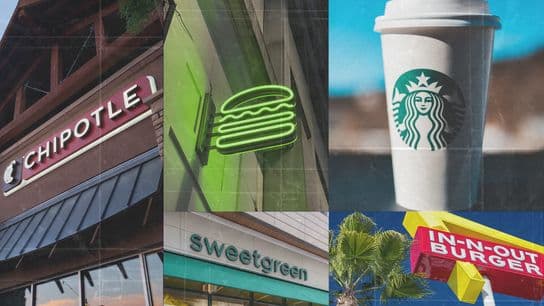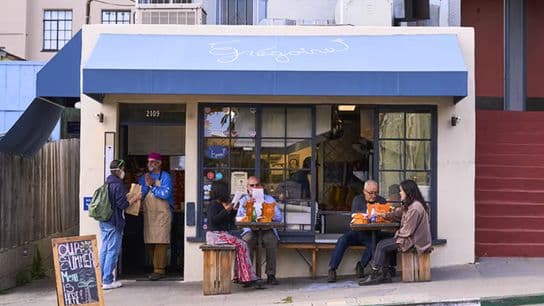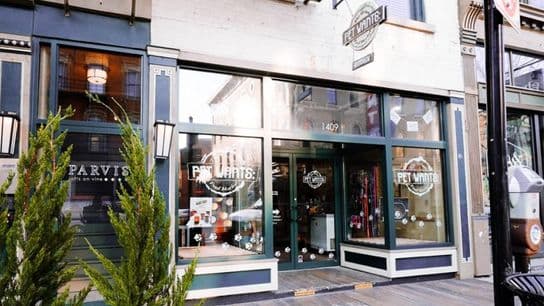McDonald’s Faces $1 Billion Discrimination Lawsuit From 52 Black Ex-Franchise Owners
Dozens of Black former franchisees allege the fast-food giant pushed them toward poorer neighborhoods and didn’t provide them with the same opportunities provided for white counterparts.
McDonald’s is being sued for up to $1 billion by dozens of Black former franchise owners who claim that the fast food giant systematically placed them in “substandard locations” that hinder profitability and growth, saddling them with high insurance costs and leaving their restaurants performing below the national norm, according to the plaintiffs.
The lawsuit is seeking roughly $1 billion, or damages averaging $4 million to $5 million per store. The group of franchisees, who operated more than 200 stores between 1988 and 2018, claim McDonald’s steered them toward “economically depressed” stores that had higher costs and lower sales. The lawsuit referred to it as “financial suicide missions.”
The filing also includes accusations of misleading financial data, excluding plaintiffs from purchasing stores on the open market, retaliation for rejecting offers to operate in “crime-ridden” neighborhoods, denial of support given to white franchisees and schemes to generate bad reviews.
The court document said it was “systematic and covert racial discrimination” targeted against Black franchisees. James Ferraro, attorney for the plaintiffs, told USA Today that McDonald’s gave the former franchisees “crappy franchises with little likelihood of long-term survival … They weren’t there to support them.”
The lawsuit claims average annual sales were about $2 million, which is more than $700,000 lower than the chain’s national average of $2.7 million between 2011 and 2016 and even smaller than the $2.9 million average in 2019. The complaint said bankruptcy often happened as a result of the sales disparity. The filing also claims the number of Black franchisees has decreased from 377 in 1998 to 186 in 2020. At the same time, the number of franchised restaurants has grown from 15,086 to 36,059, the lawsuit said.
"Not only do we categorically deny the allegations that these franchisees were unable to succeed because of any form of discrimination by McDonald’s, we are confident that the facts will show how committed we are to the diversity and equal opportunity of the McDonald’s System, including across our franchisees, suppliers and employees,” the company responded in a statement.
According to Dr. Marcia Chatelain, whose book Franchise: The Golden Arches in Black America discusses the role McDonald’s has played in disenfranchised communities, the new lawsuit shows just how complex that legacy has become.
“McDonald’s presence in Black communities has always been complex and in many ways difficult to capture,” Chatelain told 1851. “Because, on one hand, since 1968, McDonald’s has successfully recruited and promoted African-American franchise owners as well as African-American executives and managers within its corporate structure. The fundamental problem with that is that even while McDonald’s has been a space for the creation of opportunities for Black franchisees, there has been inequality in the distribution of resources to support and maintain the store owners.”
The lawsuit comes weeks after the world’s biggest QSR chain was among dozens of corporations to release a statement in support of Black Lives Matter and condemn racism following George Floyd’s death and nationwide anti-racism protests.
“McDonald’s has been down this road before, although lawsuits in the past did not involve so many plaintiffs, they have been challenged by their practices in regards to how Black franchisees are treated for decades,” said Chatelain.
In June, CEO Chris Kempczinski acknowledged that McDonald’s had more work to do to improve racial equality and diversity within the company, after two executives in Dallas filed a lawsuit against the company for allegedly pushing out Black managers and franchisees. Another lawsuit in January claimed that almost a third of Black franchisees left under ex-CEO Steve Easterbrook’s tenure between 2015 and 2019.
“There have long been formal and informal accusations of limiting Black franchisees to certain areas or creating more barriers for success within the system,” Chatelain noted. “Hopefully this time around McDonald’s will not only do justice to franchisees but also feel inspired to make sure that all of its workers of color are treated with respect and dignity.”
McDonald’s certainly isn’t the only brand that has more work to do. The franchising industry as a whole is starting to take tangible action in ensuring that brands are actually enriching Black communities rather than exploiting them.
“As this lawsuit unfolds, I hope more people use this as an opportunity to think about all of the Black and Brown McDonald’s workers who have been shut out from any kind of economic opportunity because of the low wages associated with their jobs and their inability to organize in labor unions to protect their rights as workers,” said Chatelain. “If a franchise or for franchisor really wants to uplift a Black community, the way they do that is to support policies for universal healthcare, pay living wages, make sure their workforce has access to such important resources as paid sick leave and child care benefits, and other benefits that working people deserve. As long as the franchise industry adheres to business practices that hurt workers, they can never fully uplift the communities in which they draw their employees and customers.”









